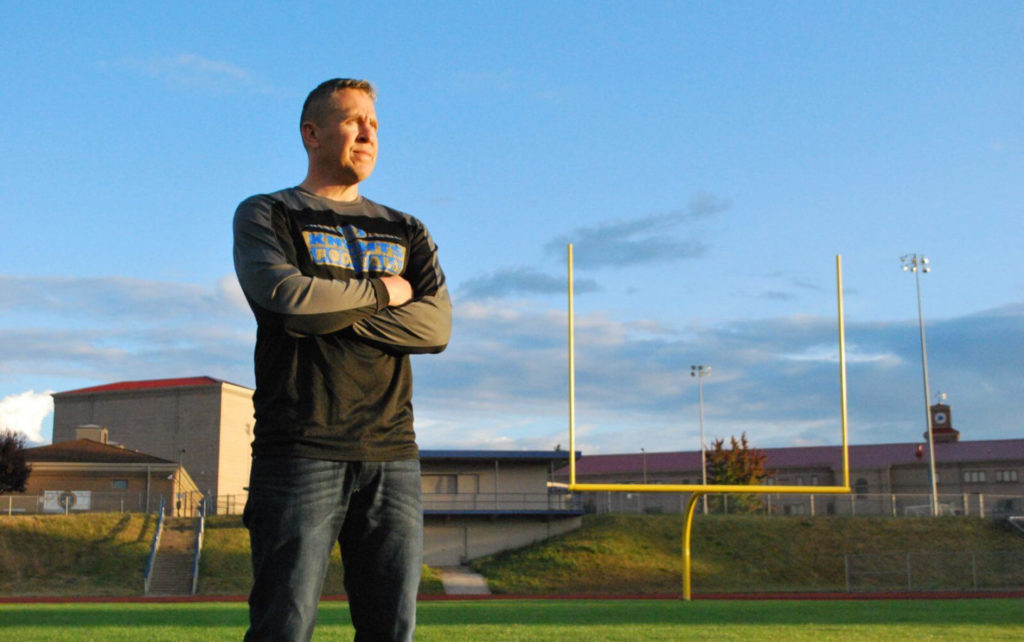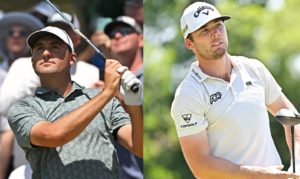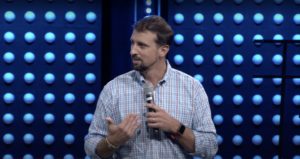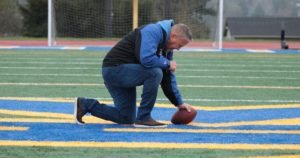Silent prayer in public is protected by the Constitution, US Supreme Court rules in coach prayer case
The government cannot punish its employees or anyone else for silent prayer, even at public events and facilities, the U.S. Supreme Court ruled Monday in another landmark victory for religious…

The government cannot punish its employees or anyone else for silent prayer, even at public events and facilities, the U.S. Supreme Court ruled Monday in another landmark victory for religious liberty.
Justices ruled 6-3 that assistant football coach Joe Kennedy was unconstitutionally suspended, and ultimately separated from his job, by Bremerton High School in Washington state for his practice of taking a knee at the 50-yard-line for solitary, silent prayer after games.
School officials, with the backing of several courts and Supreme Court justices, in effect were trying to silence even silent speech.
In an Orwellian nightmare for Kennedy, the public school felt his “demonstrative” prayer – and the fact that he incidentally attracted some of his players, opposing players and coaches, and even fans to voluntarily join him – violated the First Amendment’s prohibition against the government’s “establishment of religion.”
But Monday’s majority opinion by Justice Neil Gorsuch holds that the school’s “establishment of religion” concerns were a phantom fear – overshadowed by Kennedy’s very real and violated rights to free speech and the free exercise of religion under the First Amendment.
Gorsuch called the case “a false choice premised on a misconstruction of the Establishment Clause. And in no world may a government entity’s concerns about phantom constitutional violations justify actual violations of an individual’s First Amendment rights.”
Kennedy made a vow to God when he began coaching in 2008 to say a silent prayer of thanks after each game, win or lose. When groups of others joined him over the years, an opposing team’s school official in 2015 reported Kennedy to his principal. School officials first issued restrictions on Kennedy’s praying, which he complied with, then suspended him from all team activities – even though they admitted he was neither inviting nor coercing players or anyone else to join him.
First Liberty Institute, which defends religious liberty, took up the case and requested a religious accommodation for Kennedy under Title VII of federal law. The only accommodation offered by the school, says First Liberty, was to allow his prayer in private inside a school building. First Liberty filed suit in 2016.
On two separate occasions each, both a district court and the U.S. Court of Appeals for the Ninth Circuit ruled in favor of the school district, and against Kennedy’s First Amendment rights to pray openly and to take a knee while doing it – much like many athletes and student athletes have the past few years to speak out against what they see as racial injustice.
Now, Kennedy and all other Americans have the same right to do so in prayer.
“Touchdown,” blared a headline on Fox News, with a photo of Kennedy kneeling in prayer and touching the ground.
Liberal Justices Stephen Breyer, Elena Kagan and Sonia Sotomayor dissented, considering even the coach’s silent, personal prayer to be government-sponsored speech.
“The Free Exercise and Free Speech Clauses of the First Amendment protect an individual engaging in a personal religious observance from government reprisal,” Gorsuch writes, adding, “the Constitution neither mandates nor permits the government to suppress such religious expression.”
Those who oppose explicit prayer in schools have long argued there’s no prohibition against silent prayer. The Kennedy case proved that wasn’t true – until Monday.
“American citizens don’t give up the right to prayerfully practice their faith during working hours when they accept a job with a public employer,” Alliance Defending Freedom senior counsel John Bursch said in a statement after the ruling. ADF had supported the coach in a friend-of-the-court brief, notably filed jointly with lawyers for former and current National Football League players. “We are pleased the Supreme Court reversed the Ninth Circuit’s ruling that wrongly reasoned that Coach Kennedy’s personal, on-field prayers were not his own, but the government’s, and affirmed his constitutional right to exercise his faith, as is true for every American.”



